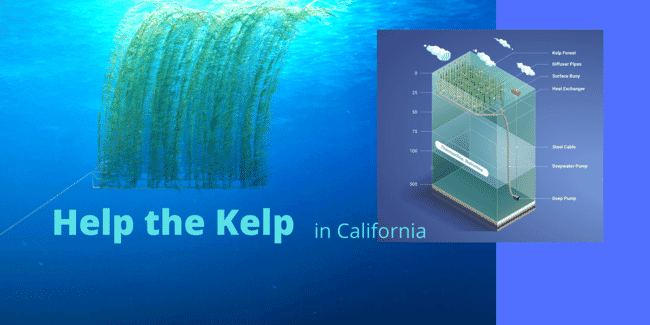
According to the prize’s official site, the competition “is aimed at tackling the biggest threat facing humanity - fighting climate change and rebalancing Earth’s carbon cycle”.
Funded by Elon Musk and the Musk Foundation, this $100 million competition claims to be the largest incentive prize in history.
While rapid and comprehensive decarbonisation of the global economy remains the top priority, to meet the goals of the Paris Agreement and avoid the worst impacts of climate change, the IPCC recognises that carbon removal will need to emerge at scale this century. However, finding ways to restore carbon balance is far from the only challenge humanity is facing. Food security, saving biodiversity and finding ways for vulnerable communities to adapt to a warming world will be crucial in the difficult decades to come.
The SeaForestation initiative aims to establish deepwater-irrigated, open-ocean seaweed mariculture as a strategy for food security, regeneration of ecosystem services and carbon sequestration.
At scale, deepwater irrigation can regenerate seaweed forests offshore, from tropical to seasonally temperate waters, as demonstrated by the Climate Foundation’s Philippines site deployed since 2019.

The foundational principles underpinning the development of the company’s marine permaculture system comprise:
1. Food security
Seaweed is harvested to create biostimulants that confer drought and heat resilience to crops, cutting fertilizer requirements by 20 percent while preserving yields. Seaweed is also a nutritious and scalable food source, helping to diversify food systems and reducing pressure on land-based agriculture. Offshore seaweed platforms will relieve precious land and coastal ecosystems. They will shift food production to the vast, naturally low-productivity, tropical and subtropical open ocean, with its immense deepwater nutrient supply.
2. Ocean ecosystem regeneration
Marine Permaculture platforms will have a significant impact on marine life by regenerating many of the ecosystem services provided by offshore seaweed forests, including the provision of fish habitat.
3. Carbon balance
Every square kilometre of marine permaculture could potentially fix thousands of tonnes of carbon dioxide per year. Much of the seaweed falls from the seaweed platform during growth and sinks to the deep seafloor, where it is sequestered from the atmosphere for centuries in the abyssal ocean.
Having won this milestone award, the Climate Foundation and the other winners will scale their projects. Additional grand prizes are to be awarded in 2025, with $50 million paid to a single Grand Prize Winner and $30 million to be distributed among 2-3 additional winners.
Dr Brian von Herzen, a Hertz Fellow, co-founder and executive director of the Climate Foundation, remarked in a press release: “We are so proud that Marine Permaculture SeaForestation has won a Milestone XPRIZE for Carbon Removal from a field of 1,100 registrants. We wish to thank the judges for validating the potential of Marine Permaculture to help provide food security for billions, regenerate marine ecosystems, and draw down gigatons of carbon from the atmosphere and into the deep sea, consistent with Earth’s natural mechanisms for removing carbon from the atmosphere.”



